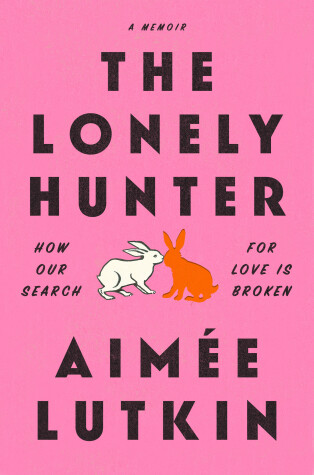The Lonely Hunter was not quite what I was expecting as the majority of the book is a memoir chronicling the author's most recent dating history. I'm not saying that's a bad thing, or that it wasn't interesting. But after the opening chapter where she announces that she's just going to be single, much to the horror of her partnered-up friends, I was looking forward to her living her best life as a single person. She talks about how when people are lonely, everyone seems to believe the "cure" is to be in a couple. Why can't friends, family, pets, community be enough? Why are sex and romance the only solution?
I'm not here to shame the author for dating (and enjoying it!) after making such an announcement to her friends, and later to the world via blog post. Just like she doesn't think people should be shamed for not wanting to date or be in a long-term relationship. But it was a jarring departure from where I thought the book was going. Yes, the description mentions her dating, but it made it sound like it was part of some larger investigation about loneliness, which is not what it read like. It read like a memoir about dating in your thirties after having "given up" on finding the one. I wanted someone to stand in solidarity with that it's perfectly fine to not seek marriage, 2.5 kids, or even cohabitation.
The Lonely Hunter does seem to get back on track in the final chapter where the author does start discussing how there are other ways to keep loneliness at bay, not just a romantic relationship. She also briefly mentions how community structures and policies favor married couples, and how these things need to change to be more supportive of single people. Then we can all thrive as a society and searching for love can be something people want to do rather than something they feel like they have to do. She does go on a rant about incels, who are bottom of the barrel scum of the Earth, and I feel like this derailed the point she was trying to make a bit. She brings up interesting points but never goes anywhere with them.
Despite the mismatched expectations, I did fully enjoy The Lonely Hunter for what it was. As a thirty-something with next-to-no dating experience, I found it comforting that the author went on plenty of successful dates after deciding to date again at 32. It felt good to know that it's not impossible if I decide to make that choice. And that's what it should be: a choice. Not some pressure placed on me by society to get matched up before I'm "too old."
